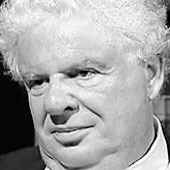How Qaddafi Mastered the Globalization Game
What has enabled Libyan leader Muammar Qaddafi to weather North Africa's tsunami of popular revolutions?
April 18, 2011
Former President of Egypt Hosni Mubarak had a far more difficult job than Libyan leader Muammar Qaddafi. Egypt has no major natural resources. When Mubarak took power in 1981, his country’s population, at 40 million, was already threatening to be unsustainable due to a very limited amount of fertile, arable land in the Nile Valley and Delta. By the time he was toppled in February 2011, it had soared to 83 million.
The challenge of providing gainful employment and a reasonable standard of living for all those people would have been almost insurmountable for any government. Mubarak made it worse by complacently preserving the gigantic, economically repressive bureaucracy imposed on the country in the 1950s by President Gamal Abdel Nasser.
When Mubarak finally approved a privatization program over the past decade, he made the same disastrous mistakes that Russia did in the 1990s under President Boris Yeltsin. Control of the supposedly privatized companies was kept within a tight circle of Mubarak’s cronies and senior army officers, most of whom became instant multi-millionaires.
The privatized companies remained effective monopolies in their respective markets. No true competition or opportunities for new company creation and entrepreneurship were allowed.
Qaddafi had a much easier task in Libya. The country was already a major global oil producer when he seized power in 1969, and it remains among the top ten global oil producers to this day, while also exporting large quantities of natural gas.
Nor has Libya suffered the impact of an out-of-control population explosion the way Egypt has. Its total population remains around only eight million. And while Qaddafi certainly repressed any free market domestically, he did allot enough financial resources to domestic programs to ensure a considerably higher standard of living per capita than Egypt had at any time under Mubarak.
After 42 years of repressive rule, there can be no doubt that apart from his Qadhadhfa tribe, Qaddafi and his family members are now massively unpopular. In any free election or referendum they would certainly be voted out of power.
Apart from the capital Tripoli and a handful of traditional strongholds, the popular revolutionaries were able to seize control of every major city, including Benghazi, with a population of more than one million.
However, Qaddafi was able to survive the onslaught and organize a remarkably successful counter-offensive to re-conquer much of the country because he retained control of his armed forces and was able to pay for aircraft and pilots from Syria and for mercenary troops from sub-Saharan Africa.
Most of all, it is Libya’s oil wealth, financed and maintained from the skillful sale and negotiation of oil and gas contracts, that has given Qaddafi his power. He continues to control financial reserves worth an estimated $70 billion.
And how did Qaddafi amass so much wealth? By selling his country’s hydrocarbon reserves to major international oil corporations for use primarily in Europe, of course.
In fact, Qaddafi was vastly more skillful at maximizing national income from his country’s oil and gas wealth than the leaders of Iran and Iraq have been over the past half century.
He took the opposite route of Saddam Hussein in Iraq. He avoided getting caught up in long-running, ruinous wars. He hated Israel and bankrolled the massacre of the 11 Israeli Olympic athletes at the 1972 Munich Games, but he never provoked the kind of devastating Israeli counter-strike that destroyed Iraq’s Osirak nuclear reactor in 1981.
After the 1987 Lockerbie airliner bombing, Qaddafi pulled in his horns and developed accommodating, and highly lucrative, trade policies with the West, especially with the EU nations.
Far from hating Italy, which had been a particularly merciless overlord of Libya in the 31 years from 1911 through late 1942, he developed a mutually beneficial energy trading relationship, allowing Italian oil and gas giant ENI prominent access to his country’s oil. He has enjoyed particularly good relations with current Italian Prime Minister Silvio Berlusconi.
Qaddafi has shrewdly used the vast financial clout generated by his skill on the global energy market to buy friends and favor throughout sub-Saharan Africa. That influence is now proving crucial to his survival by giving him the leverage to maneuver the African Union on his behalf.
American pundits continue to vastly underestimate Qaddafi by writing him off as “crazy.” But if he’s crazy, he’s crazy like a fox.
Qaddafi certainly is ruthless and determined to maintain his power. But his remarkable success in weathering North Africa’s otherwise irresistible tsunami of popular revolutions and in surviving a sustained air campaign of the kind that brought Serbia to its knees in 1999 suggests he has carefully studied and assimilated another European/Italian cross-cultural influence.
Muammar Qaddafi, the Great Survivor, is surely a careful student and prime beneficiary of Niccolo Machiavelli’s “The Prince.”
Takeaways
Qaddafi has shrewdly used the vast financial clout generated by his skill on the global energy market to buy friends and favor throughout sub-Saharan Africa.
It is Libya's oil wealth, financed and maintained from the skillful sale and negotiation of oil and gas contracts, that has given Qaddafi his power.
American pundits continue to vastly underestimate Qaddafi by writing him off as "crazy." But if he's crazy, he's crazy like a fox.
